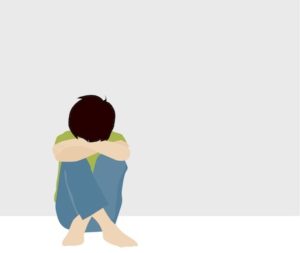Doctors’ Notes
BackTeen Depression
Life today can be complex and hectic, especially for teens!
Teenagers are managing new responsibilities and independence all while undergoing body changes, increased academic expectations, and social pressures.
 It’s no wonder many teens may feel like they’re on emotional roller coasters. While these day-to-day ups and downs are to be expected, feelings of sadness, anger, or a depressed mood that last beyond a few days may indicate a more significant problem — especially if the teen is finding it difficult to function in his or her normal activities.
It’s no wonder many teens may feel like they’re on emotional roller coasters. While these day-to-day ups and downs are to be expected, feelings of sadness, anger, or a depressed mood that last beyond a few days may indicate a more significant problem — especially if the teen is finding it difficult to function in his or her normal activities.
Depression is one of the most under-diagnosed and under-treated teen psychiatric illnesses. It’s estimated that more than 1 in 5 teens will be affected at some point in their lives – a scary statistic! Depression can affect every aspect of a teen’s life, from relationships, to school performance, to their physical health.
So how do we identify the difference between normal emotional changes and true depression?
First, symptoms of depression typically last more than two weeks. Second, these symptoms cause a significant impact in the teen’s day-to-day functioning — often to the point where friends, family members, teachers, or coaches have noticed a change in performance and/or behavior.
Signs & Symptoms of Depression
Symptoms of depression in teens may include the following:
- Depressed mood: feeling sad, hopeless, or irritable most of the day
- Not enjoying activities they typically enjoy (like playing a favorite sport or spending time with friends & family)
- Significant changes in weight or appetite
- Sleeping too much or too little
- Feeling extremely fidgety or slow moving
- Fatigue or decreased energy
- Poor concentration
- Feeling worthless or like everything is their fault
- Thoughts of suicide, death, or of harming oneself or others.
What to Do If You Think Your Teen May Be Depressed
First, don’t wait to talk to someone about it! Depression doesn’t get better on its own, and can have serious consequences. A parent/guardian, teacher, coach or other trusted adult can be the first step in getting teens the help they need. The next step is making an appointment with one of our providers at Kids Plus. We’ll be the first step in diagnosing and managing this condition, and will help you get the support and treatments you need.
Treatment for Depression
The mainstay of treatment for depression in teens is behavioral health therapy with a counselor, therapist, or psychologist/psychiatrist. These individuals are specially trained to understand teens and, through techniques like Cognitive Behavioral Therapy, to teach them to re-direct negative thinking. They can help teach deep breathing or relaxation techniques to help with stressful thoughts or inability to sleep. They can also serve as excellent facilitators for group or family-based therapy.
There are also many safe, effective medications for treating depression that your pediatrician or psychiatrist may prescribe. Clinical studies show that medications work very well in combination with therapy. Since these medicines can take a several weeks to reach full effectiveness, it’s not uncommon for your pediatrician to start a medication while also referring the teen to a therapist to help him or her get better faster!
Your health care and behavioral health providers will also help teens work to optimize their sleep, diet, and physical activity levels – all of which are known to impact mood. If teens use things such as cigarettes, drugs, or alcohol, they will also provide support for quitting, as these are known to contribute to mood and other health problems.
Finally, we will also encourage teens to spend time with close friends and family, whose support is critical in helping them to feel better.
More Information & Resources
Pittsburgh Resolve Crisis Hotline
1-888-796-8226 (1-888-7 YOU CAN); free 24-hour help
National Suicide Prevention Lifeline
1-800-273-8255 (1-800-273-TALK); free 24-hr help
CDC Anxiety & Depression Information
National Institute of Mental Health
NIDA for Teens, Drugs & Health
Dr. Ashley Riley, a Kids Plus Provider since 2016, teaches our popular Puberty. Seriously? class. John Gabrick, PA-S, spent a rotation at Kids Plus as a PA Student from Slippery Rock University.